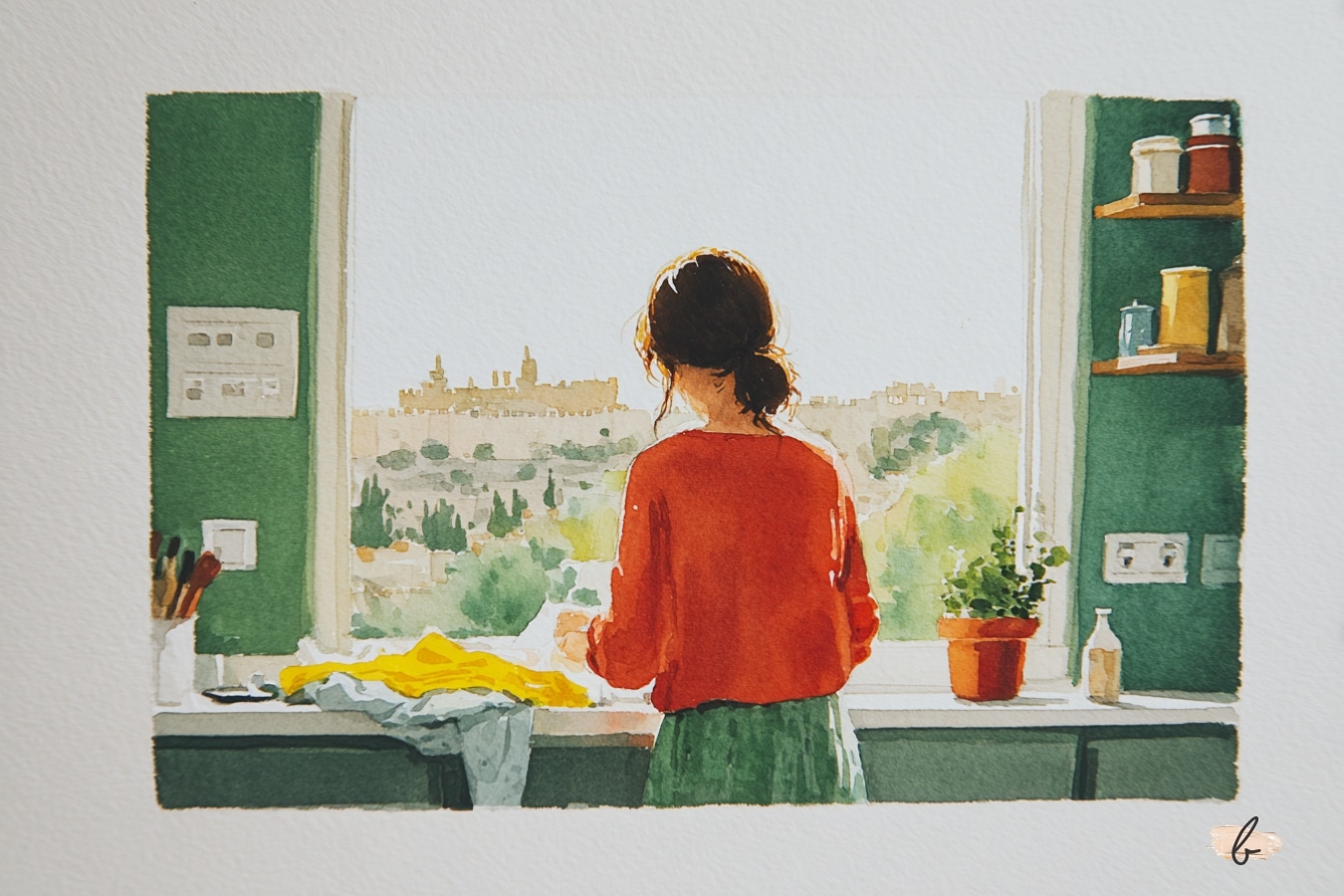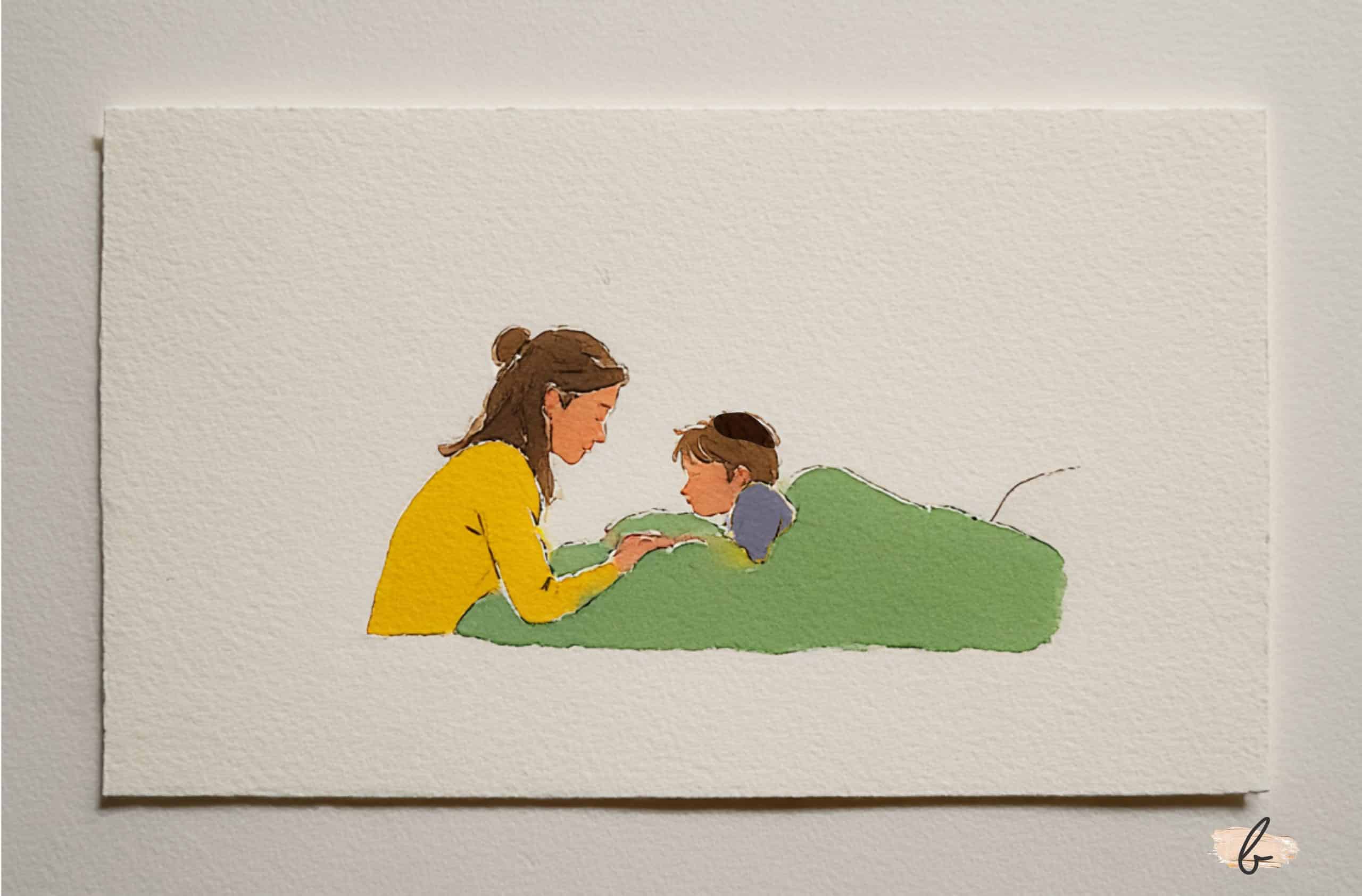I’m getting a lot of messages asking how we’re doing here in Eretz Yisroel.
Understandably, so many of your messages have a guilty undertone.
“I feel so guilty going to work…”
“I’m planning a simcha, and it just feels wrong…”
“My kids are off to camp, and I’m shopping and packing while your kids are dodging sirens. It’s so hard for me!”
Missiles were launched from Iran into Eretz Yisroel.
That sentence alone is enough to stop time.
But for those of you not yet zoche to be in Eretz Yisroel, life on the outside looks normal right now.
The school year is ending.
And camp duffel bags need to be packed.
And summer menus have to be planned.
Normal day-to-day stuff. But I know it doesn’t feel that way.
Because while you’re heading to work or labeling socks and packing sunscreen, you’re also checking the news ten times a day. Crying as you whisper Tehillim. Davening harder. Sending money. Feeling helpless. Feeling cracked open.
And at the same time… you’re still doing the normal.
Because you have to.
Because you have a family.
Because life doesn’t pause, even in pain.
But maybe that’s exactly what makes you feel so guilty.
Why am I still doing bedtime?
Why am I checking off to-do lists while other women are checking on their husbands in uniform?
Why am I setting my Shabbos table and folding guest towels, while someone else is crouched in a stairwell?
Why am I picking out a top for a date, while someone else is picking up shattered glass?
The guilt is real.
The ache is real.
But you’re not doing something wrong.
You’re living inside a broken world.
Galus Has Never Been Normal
Life isn’t “normal” right now, for any of us. Whether you’re in Eretz Yisroel or abroad.
But let’s be honest:
Life without the Beis Hamikdash has never been normal.
We just got used to calling it that.
So yes, things feel strange right now. They should.
And yet… this is the world we were born into.
And this is where our avodah begins.
The Work of Galus Happens in the Mundane
Even in these crazy times, we still have to show up.

We still fold laundry.
We still cook dinner.
And we also check work emails.
And text back about shidduch resumes.
And return books to the library.
And iron white shirts.
And meet a friend for coffee.
And wipe the counter for the tenth time today.
We still pack the peanut butter sandwiches, hand out ices, and make dentist appointments and answer twenty-five “Ma! Ma! Ma!”s in a row.
This is not a contradiction.
It’s the work of galus.
We shine light into a world that doesn’t make sense.
We bring Hashem into the ordinary.
We daven. We cry. We give tzedakah.
And then we sweep the floor and go to work.
Not because we don’t care.
But because we do.
The Mikdash Me’at Starts at Home
The Gemara calls it a mikdash me’at, a miniature Beis Hamikdash.
That’s what we’re building in our homes, every time we do the work.
Every time we respond with patience.
Every time we respond to a favor with happiness.
Every time we say a brachah aloud.
Every time we set the table with kavod.
Every time we tuck someone in with love, even if our hearts are heavy.
When we do those things, we’re not just surviving galus.
We’re preparing for geulah.
Even the Mundane Can Be a Mitzvah
So yes, finish packing those duffels.
Yes, prep that food.
Yes, send the nosh package.
Yes, stop for a coffee after work.
Yes, choose joy when it’s your turn to host.
Yes, get ready for that simcha.
Yes, review a friend’s resume.
But do it with extra awareness.

With the understanding that every normal act can become a spiritual one when it’s done with the right heart.
Because Hashem doesn’t just live in Yerushalayim.
He lives in your kitchen.
In your laundry room.
In your carpool line.
In your whispers of tefillah.
In your hallway as you leave for work.
This Is What We Can Do Right Now
No, you’re not in a uniform.
No, you’re not in a bomb shelter.
No, your life doesn’t feel heroic right now.
But showing up fully for your family, for the people you love, and for yourself, with love and dignity, is heroic.
This is how we hold up our part of the story.
This is how we become partners in the Geulah.
Because when we create a home where the Shechinah can rest, a mikdash me’at,
we’re not just getting through this darkness.
We’re lighting the way out.
And may everything we do, even the “normal” things, be part of bringing Mashiach.
Bimheira b’yameinu. Amen.




Leave a Reply